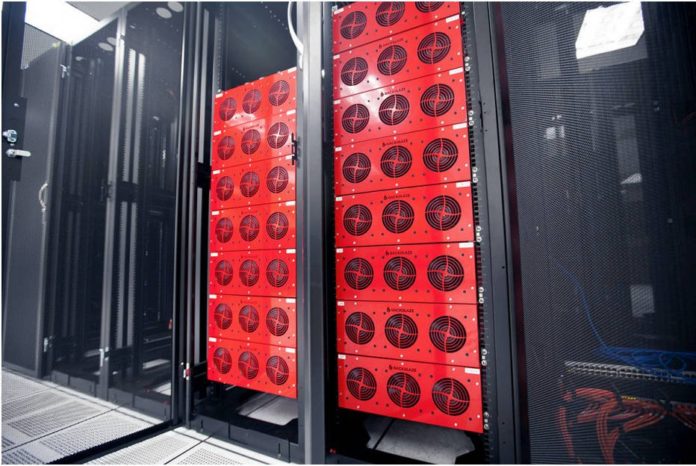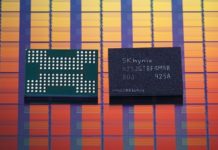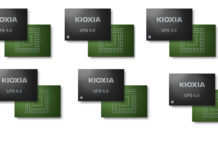Cloud backup and storage provider Backblaze has added SSD reliability stats to its longstanding disk drive reliability numbers and, what do you know? SSDs break almost an order of magnitude less often.
The details are in a pair of tables included in a blog this week by Backblaze’s Andy Klein, who has an eyebrow-raising title: Principal Storage Cloud Storyteller.
Backblaze uses SSDs as server boot drives and also to to store log files for system access, diagnostics, and more. This means they are regularly reading, writing, and deleting files, just like normal enterprise SSDs. Klein tabulated annual failure rates (AFR) in 2021’s first quarter for Backblaze’s fleet of 1,518 SSD and 1,669 HDD boot drives:
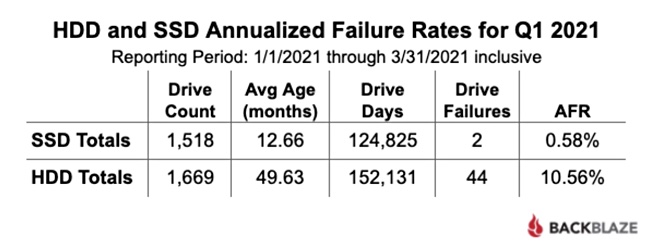
The disk drives failed 18.2 times the rate of the SSDs, with Klein saying: “the obvious difference in the AFR between the HDD and SSD boot drives is eye-opening.”
Then he tried to be kinder to the spinning disks, taking more account of their age, and looked at lifetime HDD and SSD failure rates from April 20, 2013 to March 31, 2021:
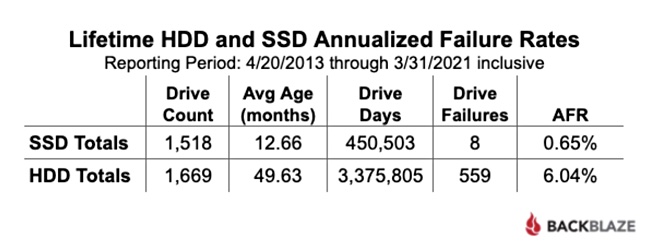
Now HDDs failed only 9.3 times more often than SSDs. Klein noted drives tend to fail more as they get older. Backblaze’s oldest disk drives are almost 96 months old with the youngest 24 months old. The SSD fleet’s age is 30 months or less, meaning there’s not much overlap. Klein will try to align the SDD and HDD timelines over the next few months “to examine the HDD drives in their early years of use and we’ll publish those results.”
Klein also pointed out that the lifetime AFR for all of the drives in Backblaze’s farm is now 1.49 per cent. This, we’re told, “is the lowest recorded value since we started back in 2013. The drive population spans drive models from 4TB to 16TB and varies in average age from two weeks (WDC 16TB) to nearly six years (Seagate 6TB).”
TL;DR: Disks are getting more reliable but still die more often than SSDs.


